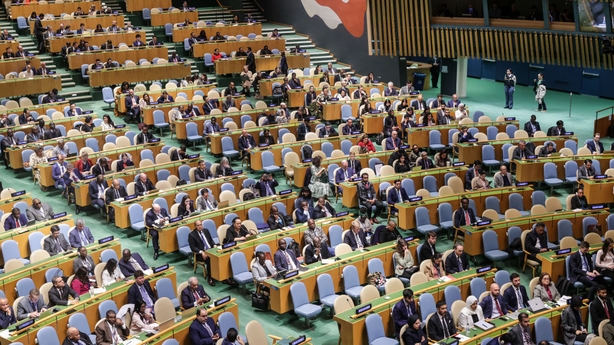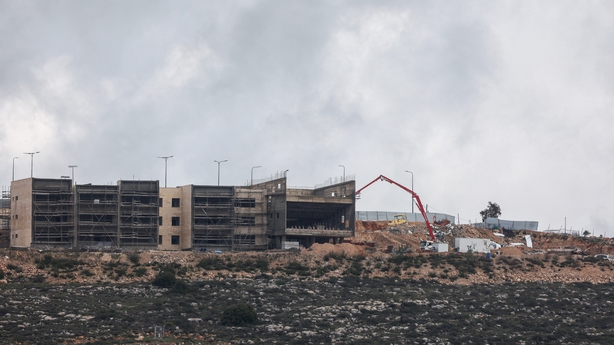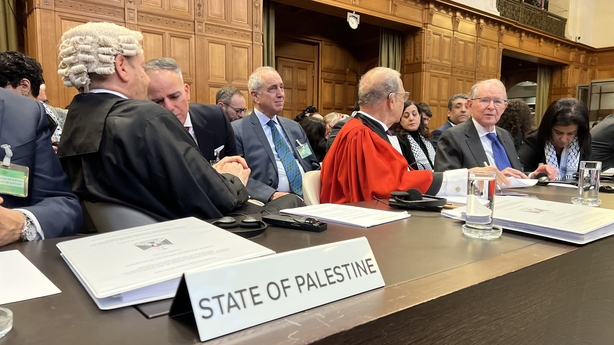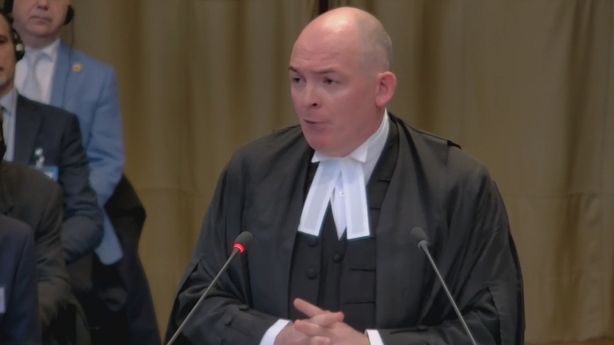In December 2022, the UN General Assembly asked the International Court of Justice (ICJ) to examine the legal implications of Israel's decades-long occupation of Palestinian territories.
It could not have known that, by the time the court got around to considering the matter, a full-scale war would be raging in the Middle East.
While the hearings, which concluded yesterday, were formally about what the General Assembly described as Israel's violation of the Palestinian people's right to self-determination, they have taken on increased significance, and new urgency, in the context of the current hostilities.
They have also put increased political pressure on Israel in relation to its military campaign in Gaza, not least because many of the submissions heavily referenced the present phase of the conflict.

Ultimately, though, these hearings were not about the ongoing hostilities in Gaza or the Hamas attack on 7 October.
They are also separate from the case that South Africa has brought before the same court in relation to potential Israeli violations of the Genocide Convention in Gaza.
But, in and of itself, the case is the first time that the UN's top court has been asked to examine the legal consequences of Israel's "prolonged occupation, settlement and annexation" of Palestinian territories, including the West Bank and East Jerusalem, since 1967, when Israel's military occupation began.
The General Assembly resolution also asked the court to consider the legal consequences of the occupation for all states – to determine whether other countries have obligations in respect of it.
The court was inundated with submissions, requiring it to hold six days of hearings that only concluded yesterday.
Over the course of the past week or so, it heard from representatives of more than 50 countries, a remarkably high number.
'Israeli withdrawal'
Most of them made arguments in support of the Palestinian position. And though the General Assembly did not ask the court to consider a potential Israeli withdrawal from Palestinian territories, many countries have argued in favour of one.
However, the court did not hear from one state - that of Israel. While Israel made a written submission, it has rejected the validity of the proceedings.
It also warned that the case could harm the possibility of achieving a two-state solution, which would establish a Palestinian state alongside Israel.

Palestinian representatives argued the opposite - that the court finding Israel's occupation illegal would pave the way for such a resolution.
The US, Israel's staunchest supporter, did not stray far from its usual position.
It argued against the calls for a withdrawal of Israeli forces from Palestinian territories, warning that it would have implications for Israel's security.
"Any movement towards Israel's withdrawal from the West Bank and Gaza requires consideration for Israel's very real security needs," Richard Visek, a legal adviser at the US State Department, said.
"We were all reminded of those security needs on 7 October, and they persist," he said, referencing the Hamas massacre in Israel.
"Regrettably those needs have been ignored by many of the participants in the court's hearings."

However, like with its stance on the conflict in Gaza, the US is isolated when it comes to the arguments it put before the Hague.
Yesterday, the Arab League, which represents 22 Arab states, including Egypt, Jordan and Saudi Arabia, told the court that Israel's occupation is "an affront to international justice".
Echoing its long-standing position, Russia told the court last week that Israel should end its occupation.
A legal advisor to China's foreign ministry said that Israel's occupation was illegal.
"Justice has been long delayed, but it must not be denied," Ma Xinmin said.
"Fifty-seven years have passed since Israel began its occupation of the [Occupied Palestinian Territories].
"The unlawful nature of the occupation and sovereignty over the occupied territories remain unchanged."
'Forceful contribution'
Irish Attorney General, Rossa Fanning, made a forceful contribution last week, arguing that Israel's actions were in clear breach of international law.
Referencing illegal Israeli settlements in Palestinian territory, the building of which have picked up pace under the current Israeli government, Mr Fanning said that other states should take steps to review their trading relationships with such settlements.
That, he said, was just one measure other countries could take to bring an end to Israel's occupation, which Ireland has long opposed.
And he warned that, while a military occupation in and of itself was not inherently illegal, a prolonged occupation could constitute a "disguised form of annexation", which would indeed contravene international law.

That is the crux of the question brought before the court; what the legal consequences of Israel's actions are, whether its decades-long occupation violates international law.
The UN General Assembly has asked the court to provide what is known as an advisory opinion in this case. While anything the court advises will be closely watched, such an opinion would be non-binding.
But there is also the question as to whether the court will refuse to provide an advisory opinion on the basis that, for instance, the questions put before the court are too political.
While the court can choose to decline a request to provide an opinion, it has never taken that route in its nearly 80-year history.
The wheels of international justice turn very slowly. The 15-judge panel of the court is expected to take around six months to issue its opinion - far too late to have any measurable impact on the current conflict.
Whether it plays any significant role in the wider struggle for a two-state solution also remains to be seen.






